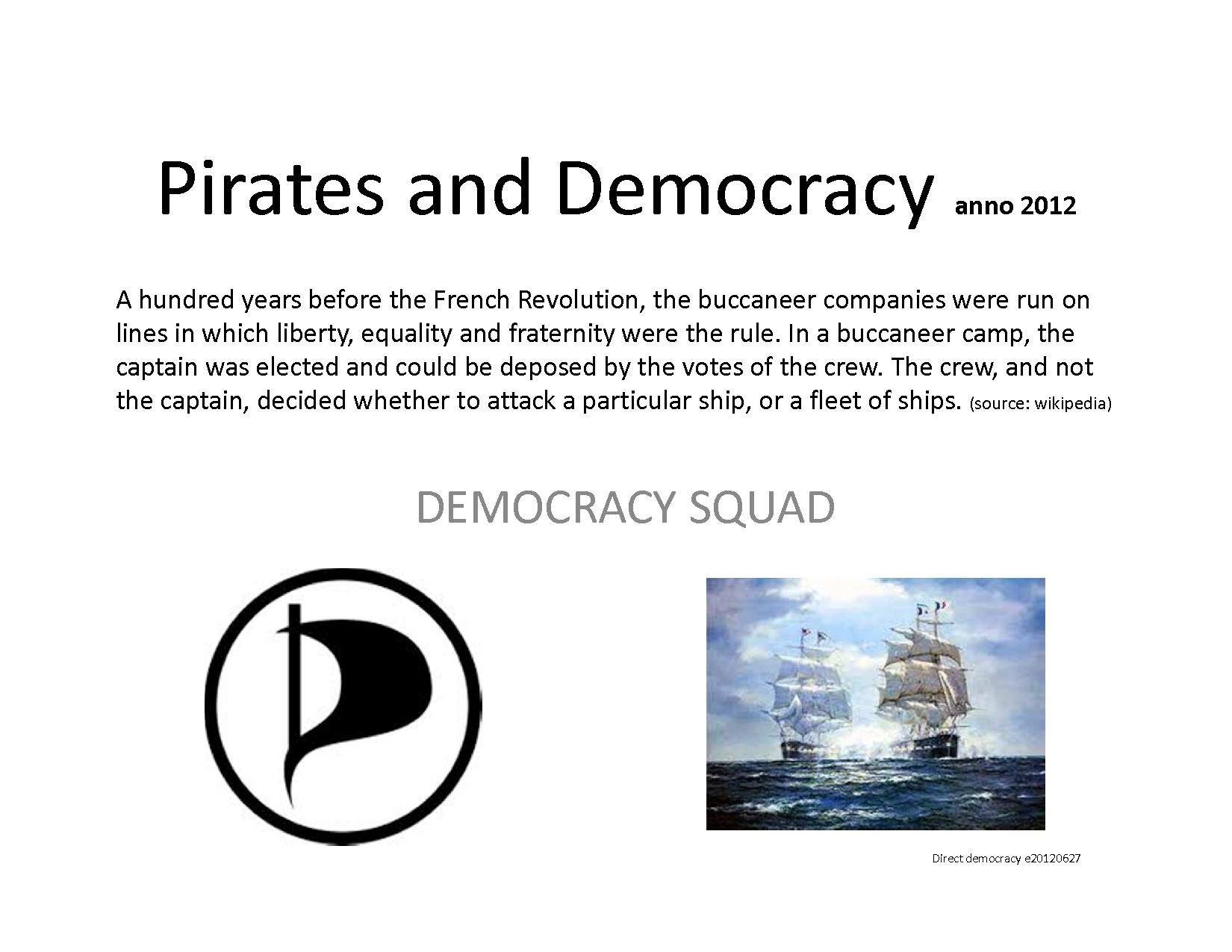Pirate Democracy
Jump to navigation
Jump to search
| |||
| Topics | Democracy | ||
|---|---|---|---|
| Start date | Mon 6 August 2012 | ||
| Status | Abandoned | ||
Basic definition
Permanent direct democracy with proxy voting.
Permanent: 24/7, not restricted to once every 4 years
Direct: citizens have the possibility to propose new law proposals and vote on law proposals by themselves, without the need for an elected representative
Democracy: legislative power of the citizens (citizen sovereignty)
Proxy voting: any citizen may delegate her vote to whom she wishes, change delegate anytime, or vote herself whenever she wants to.
Implementation
Proxy voting
- The scope of vote delegation should be kept as broad as possible initially, but voters should be given the opportunity to change the rules and limit their own voting possibilities later on. More concretely:
- No limitation on the number of delegated votes
- Transitive voting without limitation
Outstanding questions
Principles
- How about the formation of a government? How about executive power?
- What would be the role of sortition ("tirage au sort") and deliberative democracy?
- Do we need other institutions than just the citizens voting on law proposals (e.g. a judicial committee to write law proposals in judicial language, an "expert" committee to provide advices and opinions on law proposals, etc...).
Technical details
- Should delegation be transitive? i.e. I delegate my vote to X who delegates her vote to Y, who delegates her vote to Z, so I delegate my vote to Z.
- For: you trusted Y, whatever his decision, so you should trust his decision to delegate as well.
- Should delegates receive a compensation for their work?
- For: this will provide an incentive for people to invest time in studying law proposals
- Against: This will leave the door open to professional politician who can abuse the system
- Should there be a limit to the number of votes a delegate can gather?
- Against: people should have the freedom to vote whatever they want
Axioms for a democratic decision making system
- Nobody has more decision-making power than anybody else
- The threshold to perform any action in the system needs to be as low as possible
- Everybody needs to be able to make and vote any proposal
- The freedom to do what you want with your vote needs to be as unlimited as possible.
- The final result needs to reflect the intentions of the voters as much as possible.
- Nobody can gain more influence on the final result through strategic proposals or voting.
- You have to be able to verify what happend to your vote.
- Every voting needs to be verifiable.
- Everybody has the right to remain anonymous.
Presentations and documents
- Direct Democracy ppt presentation

- File:Vrijheid van meningsuiting Antrop. zomeruni 2012.doc Freedom of speech
- File:Vrijheid van meningsuiting Antrop. zomeruni 2012.doc Vrijheid van meningsuiting
Discussions
- File:Copy van piratepad v7495 20120924.doc
- File:Copy van de mailing onderwerp meerderheid v20120924.doc
General information
[1] Objectives of the squad